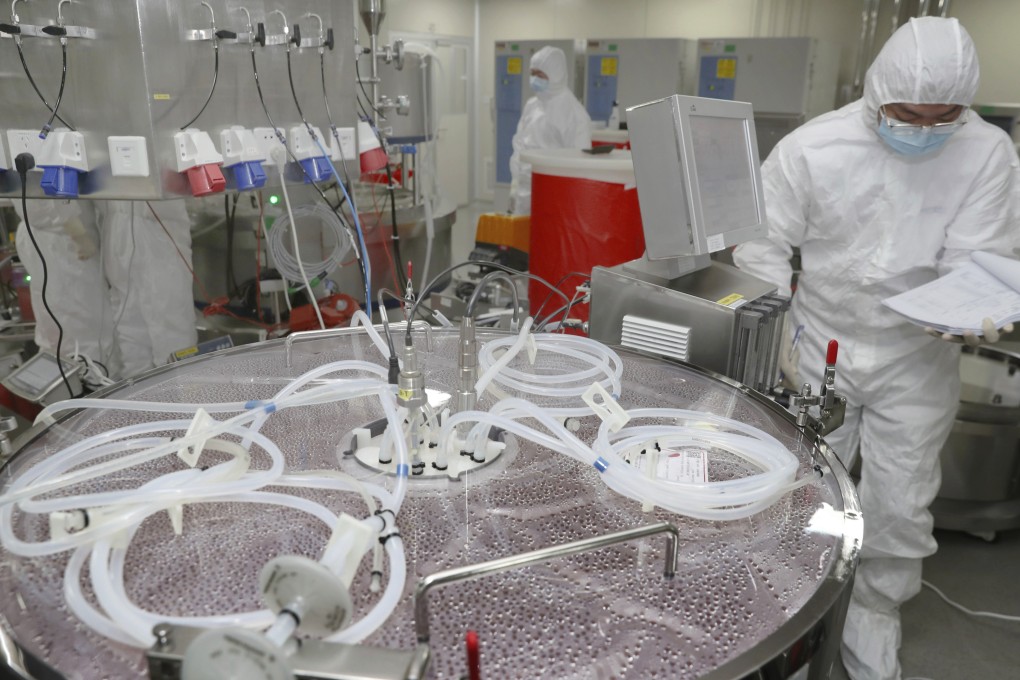Coronavirus: could China inhale its way out of zero-Covid restrictions with oral inoculations?
- Authorities in Shanghai have started administering an oral version of a Covid-19 vaccine in a bid to get more booster doses into people
- ‘It was like drinking a cup of milk tea,’ said one resident after sucking in the new needle-free vaccine

In what appeared to be a world first, Shanghai on Wednesday started administering an inhalable Covid-19 vaccine.
The vaccine, a mist that is sucked in through the mouth, is being offered for free as a booster dose for previously vaccinated people, according to an announcement on an official city social media account.
Scientists hope that such needle-free vaccines will make vaccination more accessible in countries with fragile health systems because they are easier to administer. They also may persuade people who do not like needles to get inoculated.
A online video posted by a state media outlet showed people at a community health centre sticking the short nozzle of a white cup into their mouths. The accompanying text said that after slowly inhaling, a person holds their breath for five seconds, with the entire procedure completed in 20 seconds.
